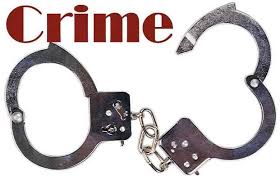The Importance of Understanding “Corrupt” Intent
 All generalizations are false, including this one — Mark Twain
All generalizations are false, including this one — Mark Twain
Proving intent is a difficult task. White collar crimes turn on the issue of intent – what was in the offender’s mind. With most things in life, people have mixed motivations. On occasion, however, it is very clear to understand an actor’s intent.
Prosecutors cull through evidence looking for indications, signs of motivation, and ultimately have to prove an actor’s beyond a reasonable doubt (criminal) or by a preponderance of the evidence (civil).
In some areas, prosecutors are able to cite the act itself as evidence of intent. When it comes to the FCPA and showing “corrupt” intent, prosecutors have stated that a “lavish” gift, such as an item over $10,000 in value reflects “corrupt” intent. That is only from a prosecutor’s perspective and that has never been proven in a contested trial. From a common sense standpoint, again the circumstances will always be part of the analysis, and it is likely that such a claim will succeed.
Chief compliance officers have to acknowledge the importance of proving “corrupt” intent. What does it mean? There is plenty of law around the term, particularly in relation to the domestic bribery statute which turns on the term “corruptly.”
When the Justice Department prosecuted Frederic Bourke for violating the FCPA, they secured an important jury instruction, which was upheld on appeal, to define the term “corruptly.” To satisfy its burden of proof against an individual, the FCPA requires the government to prove not only that a person acted corruptly but also “willfully.”
The instruction defined “corruptly” as follows:
A person acts “corruptly” if he acts voluntarily and intentionally, with an improper motive of accomplishing either an unlawful result, or a lawful result by some unlawful method or means. The term “corruptly” is intended to connote that the offer, payment, and promise was intended to influence an official to misuse his official position.
A person acts “willfully” if he acts deliberately and with the intent to do something that the law forbids, that is, with a bad purpose to disobey or disregard the law. The person need not be aware of the specific law and rule that his conduct may be violating, but he must act with the intent to do something that the law forbids.
As you can see, the law focuses on the intent to influence a government official to misuse his or her official position, and that the actor did so with a bad purpose – in other words, that the person acted with a bad purpose.
In the end, offenders rarely put down in writing what they intend to do and that they knew it was wrong – there are a few cases, however, where they have done so. Most cases turn on the surrounding circumstances and inferences that can be drawn. That is where the rubber meets the road, and sometimes inferences can be easily reached and sometimes they can be a stretch.
 When it comes to the white collar world, many trials have turned on these types of inquiries. Cases that look strong on paper can quickly evaporate into much to do about nothing when the evidence rests on a lack of concrete (documented) proof.
When it comes to the white collar world, many trials have turned on these types of inquiries. Cases that look strong on paper can quickly evaporate into much to do about nothing when the evidence rests on a lack of concrete (documented) proof.
Compliance practitioners have to take this issue and build into their company’s compliance program a requirement to document the actions they take, the reasons for the action, and the good faith believe that what they are doing (or don’t do) complies with the law and the compliance program. It is a fundamental point that is effective insurance against prosecutors and others from claiming that a company or key actor(s) behaved in a manner reflect underlying “corrupt” intent.














